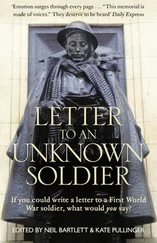She closed the browser.
When she told her almost-boyfriend, Harvinder, that her father had died, he burst into tears over the phone. He cycled straight over to see her, though she had asked him not to, and when she opened the door, he burst into tears once again. She couldn’t hide her annoyance; she stuck both her hands into the pouch of her hoodie and shuffled into the kitchen, leaving him to follow. She stood by the counter, clutching her cup of tea.
“He was so sweet, your dad,” Harv said.
“Sweet” made him sound like an old man. He was not an old man. “He thought you were a plonker,” Emily said. “He thought I was too good for you. He used to call you a Hoxton Hipster Manqué.”
Harv laughed. “That’s so sweet, though, can’t you see? All good dads think that about their daughters’ boyfriends.”
“You’re not really my boyfriend, Harv, are you.” When Emily thought back to this conversation later, she blamed her cold, hard frankness on her father’s death. “You like having a ‘girlfriend,’ ” she said, “but really, you’re gay.”
Harv looked at her, shook his head and gave a small shrug, as though he’d been accused of this many times. “You’re not yourself,” he said. “You can say whatever you want to me. I’m here for you.” He teared up once again. “You’re an orphan now, Em.”
She put her tea down on the counter. An orphan. This hadn’t occurred to her. An only child, both parents gone. Her throat tightened. She didn’t want to cry in front of Harv. What was the use of an almost-boyfriend if you couldn’t cry on his shoulder? “Thanks for coming round, Harv. That’ll be all, though,” she said.
“I’m going to go get us something to eat. You shouldn’t be on your own. I’ll be back in half an hour.”
“No,” she said. “Time to go. Don’t come back.”
He looked at her sharply, hearing the tone in her voice. “Tomorrow, then?”
She shook her head. “No. We’re done here.” She left the kitchen and opened the front door of the flat.
He followed her. “You’re not yourself. I’ll call you.”
She shook her head, no, and didn’t speak.
That night, Harriet got back from work late once again. At lunch she had sat outside with her sandwich, looking up into the blue sky. Cloudless days were unusual in London and, while the ash cloud covered Europe, these lovely clear days were spooky. She’d read the reports and looked at the satellite photos, and knew that, bizarrely, the ash cloud wasn’t visible in London, but even so, if she stared hard enough, would she be able to see the air up high limned with tiny shards of ice? Was the ash cloud actually visible from anywhere other than outer space? As she walked down the street from the train station, the night sky was silent; who would have predicted that the most compelling result of the end of aviation would be the silence? It was both alarming and soothing. Harriet couldn’t decide whether it was idyllic or apocalyptic. This is what it must have felt like in the past, before the twentieth century really got going, when the sky was full of weather and stars, weather and stars only.
When she opened the front door, the house was silent too. Jack’s bedroom door was firmly shut, no music emanating; he must be asleep already. Michael was stuck in New York. Harriet still hadn’t managed to speak to him, but she wasn’t worried. She knew that his company would take care of him and he’d get home, eventually. The house was hers and hers alone, and while tonight she thought this was a blissful novelty, it was also a glimpse of what it might be like in a few years’ time after Jack left home. She didn’t like the idea of an empty house. Maybe she and Michael should have had more children. The idea that we build new families through our networks of friends hadn’t really worked out; we are on our own, mostly. And she hadn’t seen her own parents in years.
She made herself a cup of herbal tea and drank it in the bath with the radio on, volume on low. Then she got into bed and turned on her tablet.
It had first occurred to Harriet to look for Emily online a few years ago. She had been in the kitchen, trying to get Jack off the games console so they could eat, when it came to her—boom: Emily was probably on Facebook.
Wherever she was, she must be on Facebook—unless she’d been kidnapped and taken to North Korea. Everyone was on Facebook, or at least everyone Emily’s age. Harriet could follow her. Harriet could be her “friend.”
She abandoned trying to get Jack to come to the dinner table. She turned on her computer, opened up her account and put in Emily’s name. A whole host of people with the same name appeared on her screen. She’d have to work through them and figure out which was the right girl. She’d have to open a new account, one that made her look young and groovy, someone Emily could friend without thinking about it much: “Crazeeharree.” By the next day Harriet had not only found Emily but the friend request had been successful. As simple as that. We’re “friends,” Harriet thought. Her hands were shaking. Jack had his headphones on but, even so, Harriet turned up the volume on the radio. She opened the door to the little room at the back of the kitchen, where they stored all their useless and unwanted stuff, went inside, closed the door and screamed. Then she went back into the kitchen, turned the radio down and resumed cooking.
Later that night, once she was sure Jack was asleep, Harriet returned to her computer. She took her time navigating to Emily’s page, like she was opening a door to spy on someone in the next room, trying to prevent the hinges from creaking. She clicked on the link and stopped, afraid to click any further, as though Emily would be able to tell that she was there. She made sure her chat facility was turned off and proceeded to move around Emily’s pages stealthily. Friends. Info. Her favourite things. It was all there.
It was a shock to see her. Harriet had not seen her—not a single photograph, and of course not in the flesh either—since all those years ago. Here she was, a grown woman, with long, silky dark brown hair and fashionable spectacles and a fondness for scoop-neck T-shirts, chunky necklaces and bracelets. Here she was, in a parade of photographs, with her friends, two girls, three girls, four girls and five boys, crammed together, smiling wildly, holding bottles of beer, in hats, in bikini tops, in bars, in fancy dress on outings, dozens and dozens of digital images, as though Emily’s life was an endless party, documented, posted, reposted, tagged, commented on, shared, liked. Harriet stared at the photographs, hoping for clues about Emily, beyond the information posted on her pages. Who was she?
And now, in bed with her tablet at the end of a long day, Harriet watched her, like a ghost stalker, a quiet, persistent presence, hovering in the ether. She’d been following her online for several years, but she still didn’t really know what Emily was like. Emily’s friends had posted multiple new messages on her page, and Harriet realized with a shock that Emily’s adoptive father had recently died. She flicked back and forth between the posts. She could send her a message. It would be easy, here, by herself in front of the computer. “Hey Emily,” she could post, “it’s me.” She’d thought about doing this many times, but the story she had to tell was too complex, too convoluted and confusing. She’d never told the story, not to Michael, not to Jack. Only the people who were present at that time knew what had happened, and she’d lost touch with everyone.
Harriet used the touchscreen to enlarge the most recent photo of Emily. It was painful to look at her, but she’d got used to it, and now it would be more painful not to look. What can I do to help her through this? What can I say, without fucking up everything? Will she want to know me? When the day comes and she learns the true story, will she turn away?
Читать дальше












